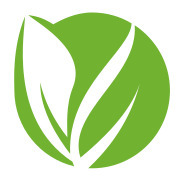Introduction
Genital blisters can be a source of discomfort and concern for many individuals. While it is always important to consult a healthcare professional for an accurate diagnosis and appropriate treatment, there are also holistic approaches that can complement medical interventions. This article will explore natural remedies and lifestyle changes that can help in healing genital blisters.
Understanding Genital Blisters
Genital blisters are small, fluid-filled bumps that can appear on or around the genital area. They can be caused by various factors, including sexually transmitted infections (STIs), allergic reactions, friction, or skin conditions such as herpes or genital warts. It is crucial to seek medical advice if you experience genital blisters, as a proper diagnosis is essential for effective treatment. However, in addition to medical interventions, there are holistic approaches that can support the healing process and promote overall well-being.
Natural Remedies for Healing Genital Blisters
Aloe Vera
Aloe vera has long been known for its soothing and healing properties. Applying aloe vera gel directly to the affected area can help reduce inflammation and promote the healing of genital blisters. Look for pure aloe vera gel or extract, free from additives or fragrances, to ensure the best results.
Tea Tree Oil
Tea tree oil is a natural antiseptic and has been used for centuries to treat various skin conditions. Dilute a few drops of tea tree oil with a carrier oil, such as coconut oil or olive oil, and apply it to the blisters using a cotton swab. This can help alleviate discomfort and promote healing.
Apple Cider Vinegar
Apple cider vinegar is known for its antimicrobial properties and can be used as a natural remedy for genital blisters. Mix equal parts of apple cider vinegar and water, and gently dab the solution onto the blisters using a clean cloth or cotton ball. This can help reduce inflammation and prevent infection.
Essential Oils
Certain essential oils, such as lavender, chamomile, and calendula, have soothing and healing properties. Mix a few drops of your chosen essential oil with a carrier oil and apply it to the affected area. These oils can help relieve discomfort and promote the healing process.
Warm Compress
Applying a warm compress to the genital blisters can help reduce pain and inflammation. Soak a clean cloth in warm water, wring out the excess, and gently place it on the affected area for 10-15 minutes. Repeat this process several times a day for relief.
Lifestyle Changes for Healing Genital Blisters
In addition to natural remedies, certain lifestyle changes can support the healing process and prevent the recurrence of genital blisters.
Maintain Good Hygiene
Keeping the genital area clean and dry is essential for healing and preventing infection. Use mild, fragrance-free soaps and avoid harsh chemicals or dyes that may irritate the skin. After washing, gently pat the area dry with a clean towel.
Avoid Irritants
Certain products, such as scented soaps, lotions, or laundry detergents, can irritate the skin and worsen genital blisters. Opt for hypoallergenic and fragrance-free products to minimize irritation and promote healing.
Wear Loose-Fitting Clothing
Tight clothing can create friction and irritation, making it harder for genital blisters to heal. Choose loose-fitting underwear and clothing made from breathable fabrics, such as cotton, to allow air circulation and reduce moisture.
Avoid Sexual Activity
Engaging in sexual activity can further irritate genital blisters and delay the healing process. It is important to refrain from sexual activity until the blisters have healed completely and you have received medical clearance.
Boost Immune System
A strong immune system can aid in the healing process and reduce the likelihood of recurrent genital blisters. Maintain a healthy lifestyle by eating a balanced diet, exercising regularly, getting enough sleep, and managing stress.
Conclusion
Healing genital blisters requires a comprehensive approach that combines medical interventions with natural remedies and lifestyle changes. While natural remedies such as aloe vera, tea tree oil, apple cider vinegar, and essential oils can provide relief and promote healing, lifestyle changes like maintaining good hygiene, avoiding irritants, wearing loose-fitting clothing, refraining from sexual activity, and boosting the immune system are equally important. It is crucial to consult a healthcare professional for an accurate diagnosis and appropriate treatment, and to follow their advice alongside these holistic approaches for optimal healing and overall well-being.

